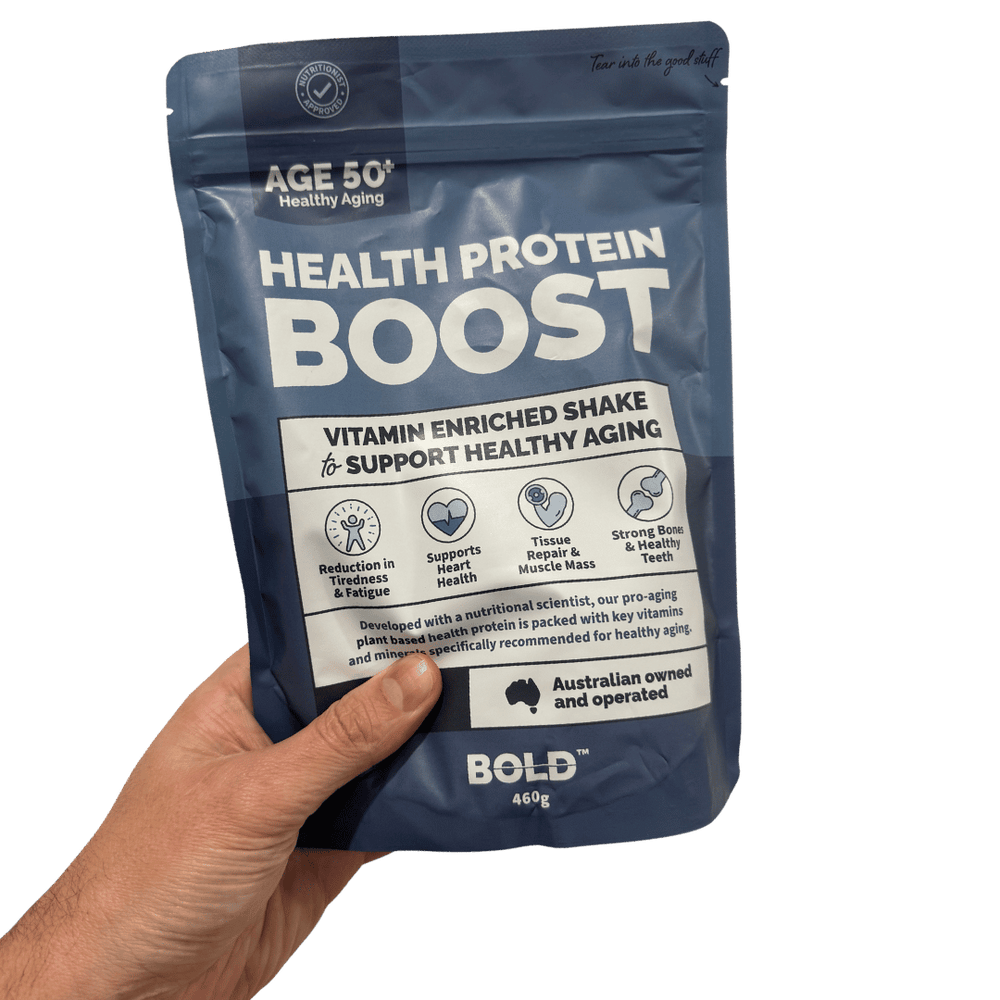What is Prebiotic Fibre and Why is it Important for Your Gut Health?

Spoiler alert, prebiotic fibre plays a leading role in our gut biome. Why is this important? Well, our intestines are home to trillions of microorganisms, collectively known as the gut microbiota. This complex environment is responsible for digestion, immunity, and even our overall health.
A balanced gut microbiome is essential for healthy digestion and nutrient absorption. However, things like diet, stress, and antibiotics can disrupt the gut microbiome, leading to digestive issues, weakened immunity, and sometimes chronic diseases.
What are Prebiotics?
Prebiotics are non-digestible food ingredients that feed the beneficial bacteria in your gut. They are a type of fibre, but not all fibres are prebiotics. Think of them as the nutrients that helps the ‘good guys’ of your gut bacteria.
When you eat prebiotics, they pass through the digestive system (without being digested) until they reach the large intestine. Here, they are fermented by the good guy bacteria, producing short-chain fatty acids (SCFAs). These SCFAs are incredibly important for gut health and beyond.
The Benefits of Prebiotic Fibre
Consuming prebiotic fibre offers a wide range of health benefits:
- Improved Digestive Health. Prebiotics help maintain a healthy balance of gut bacteria, which is essential for optimal digestion. They can alleviate constipation, reduce bloating, and improve overall gut function.
- Enhanced Immunity. The gut is often referred to as the body's "second brain" due to its connection to the immune system. It’s true! Here’s an article from Harvard if you want more detail. Prebiotics help strengthen the immune response by promoting the growth of beneficial bacteria, which act as a first line of defence against pathogens.
- Better Metabolic Health. New research suggests that prebiotics may play a role in regulating blood sugar levels, improving insulin sensitivity, and reducing the risk of type 2 diabetes.
- Weight Management. Some studies indicate that prebiotics can contribute to weight management by increasing feelings of fullness and reducing appetite.
- Reduced Inflammation. Chronic inflammation is linked to several health conditions, but prebiotics have anti-inflammatory properties that can help reduce this throughout the body.
- Bone Health. Certain prebiotics, such as inulin, have been shown to improve calcium absorption, promoting bone health, and potentially reducing the risk of osteoporosis.
The Power of Soluble Corn Fibre (Inulin)
Inulin is a type of prebiotic fibre derived from chicory root. It has gained significant attention for its numerous health benefits.
- Inulin is known for its ability to improve digestive regularity and alleviate constipation. It adds bulk to stools, promoting healthy bowel movements.
- Gut Microbiome Support. Inulin selectively stimulates the growth of beneficial bacteria, such as Bifidobacteria and Lactobacilli, contributing to a healthier gut.
- Blood Sugar Control. Studies suggest that inulin may help regulate blood sugar levels by slowing down the absorption of glucose.
- Weight Management. Inulin can contribute to weight management by increasing feelings of fullness and reducing calorie intake.
Incorporating Prebiotics into Your Diet
Fortunately, there are many delicious and convenient ways to increase your prebiotic intake:
- Plant-Based Foods. Incorporate a variety of fruits, vegetables, and whole grains into your diet. Excellent prebiotic sources include bananas, onions, garlic, leeks, asparagus, whole wheat bread, and oats.
- Fermented Foods. Enjoy the benefits of prebiotics while savouring the taste of fermented foods like yoghurt, kefir, sauerkraut, and kimchi. Yum!
- Prebiotic Supplements. If you struggle to consume enough prebiotics through diet alone, consider supplementing with a product that contains inulin like Health Protein Boost.
Important Note - While prebiotics are generally safe, it's essential to introduce them gradually into your diet to allow your gut time to adjust. Excessive intake may cause bloating or gas in some individuals.
Conclusion
Prebiotic fibre is a vital component of a healthy diet. By nourishing your gut bacteria, prebiotics support digestive health, immune function, and overall well-being. Inulin, a specific type of prebiotic fibre, also offers additional benefits for digestive comfort, blood sugar control, and weight management.
Remember, a diverse and balanced diet rich in prebiotic foods is key to unlocking the full potential of your gut microbiome. Make prebiotics a part of your daily routine and experience the transformative power of gut health.
----------------------------------------------------------------------------------------------------------
Medical Disclaimer
The information provided in this blog post is for general information only, it is not intended as medical advice. For medical advice please consult with a qualified medical professional who is familiar with your individual medical needs.



